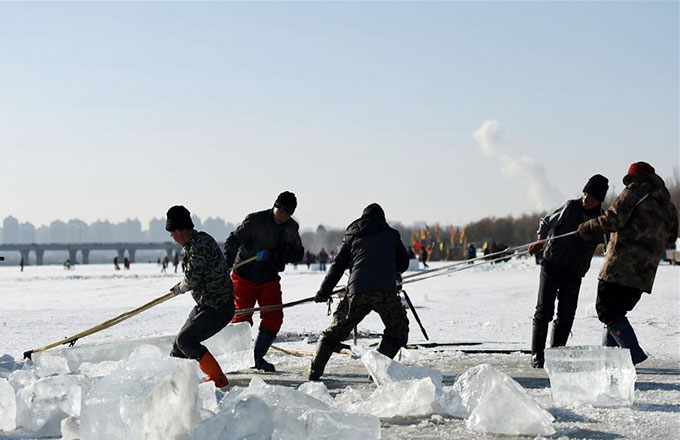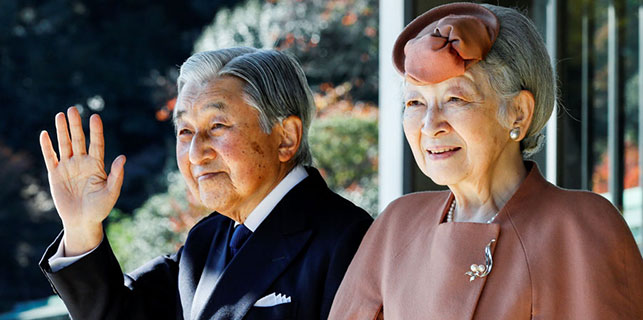Factbox: Countdown to Brexit breakthrough?
BRUSSELS - British Prime Minister Theresa May meets European Commission President Jean-Claude Juncker for lunch in Brussels on Monday for what could be a breakthrough in Brexit talks.
Here is a timeline of the following 10 days that will determine whether Britain avoids further costly delays in giving business assurances of a smooth exit from the European Union and of free trade with its biggest market in the future:
Phase time
May wants the EU to open the second phase of Brexit negotiations concerning relations after Britain's withdrawal on March 30, 2019. The EU will only do that if there is "sufficient progress" in agreeing "divorce" terms, notably on three key issues: a financial settlement, guaranteed rights for EU citizens in Britain and a "soft border" with Ireland.
One, two, three ... progress
A deal on money is effectively done, EU officials said last week. There were indications of agreement on citizens' rights and of an understanding of how at least to move forward on the Irish issue to avoid holding up the rest of the package.
Brexit dance steps
As part of the "choreography" for a political deal, the EU set May an "absolute deadline" of Monday, Dec 4, to provide new offers in time for the other EU leaders to approve a move to Phase 2 at a summit of the EU-27 on Friday, Dec 15.
May is pushing for a simultaneous, reciprocal guarantee from the EU of a soft transition and future trade deal, which she may use to show Britons what her compromises have secured. The EU wants to have firm British offers which the 27 can discuss before leaders commit. The result is some complex dance steps:
Monday, Dec 4
11 am (1000 GMT) - European Commission President Jean-Claude Juncker and his Brexit negotiator Michel Barnier meet Guy Verhofstadt and his Brexit team from the European Parliament. The legislature, which must ratify any withdrawal treaty, insists EU judges must have the final say on enforcing citizens' rights.
1:15 pm (1215 GMT) - May joins Juncker and Barnier for lunch at the EU executive's Berlaymont headquarters. The plan is to sign a joint declaration on progress so far in the talks.
Wednesday, Dec 6
10 am - Juncker chairs weekly European Commission meeting at which Barnier will update them on progress. The Commission could then say there is sufficient progress to move to Phase 2.
3 pm - EU-27 envoys meet to prepare formal decision on sufficient progress to be taken at EU-27 summit on Dec 15 and to work on draft negotiating guidelines for future trade deal.
Monday, Dec 11
EU-27 sherpas meet to prepare the summit.
Tuesday, Dec 12
EU affairs ministers of EU-27 meet to prepare summit.
Thursday, Dec 14
4 pm - May attends routine EU summit in Brussels. Defence, social affairs, foreign affairs and migration are on the agenda.
Friday, Dec 15 - After May has left, EU-27 leaders hold Brexit summit. They could take one comprehensive decision on Phase 2 or break it down into separate ones on the transition and future ties.
January - Outline of EU transition offer may be ready, under which Britain retains all rights except voting in the bloc, and meets all its obligations until the end of 2020.
February - After agreeing their negotiating terms, EU-27 may be ready to open talks with London on a free trade pact that Brussels likens to one it has with Canada.
Financial settlement
The EU estimated at some 60 billion euros ($71 billion) what Britain should pay to cover outstanding obligations on leaving. EU officials say there is now agreement after Britain offered to pay an agreed share of most of the items Brussels wanted, especially for committed spending that will go on after 2020.
Both sides say there is no precise figure as much depends on future developments. British newspaper reports that it would cost up to 55 billion euros sparked only muted criticism from May's hardline pro-Brexit allies who once rejected big payments.
Irish Prime Minister Leo Varadkar said on Saturday that London would be paying the EU 60 billion euros on Brexit.
Citizens' rights
Barnier is still seeking a commitment that the rights of 3 million EU citizens who stay on in Britain after Brexit will be guaranteed by the European Court of Justice, not just by British judges. May has said the ECJ should play no more role in Britain. But the issue could be vital to ensure ratification of the withdrawal treaty by the European Parliament. A compromise might focus on making clear that the ECJ has a role only for the existing EU residents, whose numbers will shrink over time.
Member states, some of which have taken a tougher line than the Brussels negotiators, are also insisting Britain make concessions on family reunion rules and social benefits.
Irish border
The EU wants more detail on a British pledge to avoid a "hard border" at the new land frontier on the island of Ireland that might disrupt peace in Northern Ireland. London says the detail depends on the future trade agreement.
EU officials say a hard border can be avoided only if rules remain identical on either side. Northern Ireland could stay in a customs union with the EU. But Britain, and May's crucial Northern Irish parliamentary allies, insist there should be no new barriers between Northern Ireland and the British mainland.
The EU says that means the whole of the United Kingdom would then have to follow EU rules, something Brexit campaigners do not want. Dublin says it may not be possible to reach a deal on sufficient progress by Monday but in the days after that.
Ireland, with the blessing of the EU-27, says it will veto any move to Phase 2 if Britain's border offer is unsatisfactory.
Reuters
- Look to China for a partial Brexit solution
- UK lawmakers cast doubt on plan to avoid Ireland border after Brexit
- Tight-lipped May fails to halt speculation over 50-bln-euro Brexit deal
- Anger in UK over reported Brexit divorce bill of $64 billion
- Britain appoints new trade envoys to prepare for Brexit
- Confidence in UK battered by Brexit
- Irish border emerges as flashpoint of Brexit deal









